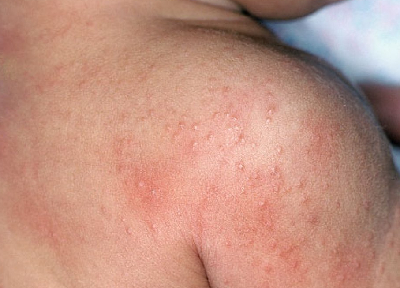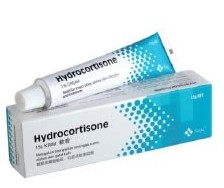Does Your Child Have Psoriasis?

Children often find it hard to cope with a diagnosis of psoriasis, probably more than adults is my guess. I have found is that the child with psoriasis may well feel quite left out with their peers. Their arms and legs, face or scalp may look quite different than other children. Younger children may even be teased and considered a “freak” by other children at school. Let’s look at this condition some children have, and offer a few solutions.
I do have some personal experience with skin issues and children, my ten year old son has Tourette’s syndrome, and while this is not psoriasis, he does have a tic which causes him to lick his lips quite often and this has caused a red rash around his face. The emotional effects due to the teasing at school is worse than the potential for this rash to cause an infection. It is easy to just think of psoriasis as a physical condition, but I can tell you, that is the least of your concerns with a child with psoriasis!
Emotional scarring
Young children especially rely on their parents a great deal to find support, not only with their symptoms, but very much so the emotional challenges they face of being different. Whilst some kids show little in the way of an emotional reaction to psoriasis, others feel can feel angry, sad or even depressed with their appearance. Some children with psoriasis I have seen are just too embarrassed to go swimming or play sports with other children. And unfortunately a prime cause of recurrence of an acute outbreak of psoriatic lesions in children is the very stress caused by being around other children with perfect skin.
Recurring psoriasis is known to cause scarring of the skin in some, yet I feel that psoriasis is also a condition which can be cause a degree of emotional scarring.
Psoriasis does not discriminate in terms of a child’s skin colour, and for the developing child there is nothing worse than waking up one day and realising your skin is different not in colour, but in texture from other people. To the child with psoriasis, healthy children have smooth, soft skin; while they have red, patchy, flaky skin and it’s embarrassing! Not only is this child embarrassed, but painful and scary as well.
Fear and anxiety
Fear can grip these children, because they will have a much harder time dealing with the harsh realities of a potentially lifelong disfiguring illness. Children will rely to a huge degree on their parents or caregivers to help them overcome psoriasis and free them from the torment the itching, the flaky red skin, as well as the pain and the recurrent emotional and physical suffering. One of the most important things you can do for children with psoriasis is to reassure them that everything is going to be fine, and that they can expect flare-ups of this condition over time.
Children not only become fearful of skin flare-ups due to the pain and embarrassment, they also experience plenty of anxiety as they try to cope and adjust because they look different. Each child will experience psoriasis differently than another from an emotional perspective, one child may become more angry and experience regular outbursts, whilst another will become withdrawn and reclusive. Another may become depressed and sad and yet another may cope perfectly well. It is impossible to predict how each child will react with their diagnosis, and in this regard it is critical for the parent to offer as much love and support as they can.
Children are affected to a greater degree by their body image and how they are viewed by their peers than adults are. Kids like to be accepted and feel that they fit in, rather than to be rejected and seen as freaks of nature. And the disturbing thing with psoriasis I’ve noticed is that it is one of the more disfiguring of the skin conditions, causing the skin to look red, scaly, patchy, dry, and with lesions that may weep and crust.
Conventional treatment of childhood psoriasis

Any naturopath who has practised for several years will tend to see plenty of patients with psoriasis, and a big reason is that skin conditions like psoriasis are deemed “incurable” by the medical profession because they are notoriously difficult to treat. Does this mean the psoriasis can never be treated appropriately by any form of medicine, that the patient can never experience extended periods of remission enabling them to feel “normal” again? No, it just means that most clinicians just place this condition in the too hard basket, because they have had mediocre results at best with psoriasis.
should there always be the need to “cure” psoriasis, when all the patient wants is to have a great quality of life and manage the condition to the point that the skin is causing minimal disturbance in his or her life?
Psoriasis in both children and adults is the same, although in conventional treatments there are considerable differences. Topical skin treatments for adults tend to be stronger and more suppressive than with children, and most adult forms of psoriasis treatment are not really suited to children due to the long term side-effects. A doctor will often decide on a suitable psoriasis treatment plan according to the patient’s age and severity of the condition. Age and past health history will be taken into account, and many different treatments may be recommended depending on the success of therapy. The conventional treatment is various pharmaceutical preparations, doctors commonly prescribe topical steroids for teenagers, while preferring to recommend moisturisers for younger children. They may prescribe very weak steroids for younger children. Side effects can occur from using topical steroids over a long period, it is therefore important to ensure the child gains a result as soon as possible.
I tend to call dermatologists the “cream specialists” as they just prescribe lotions and potions which suppress psoriasis, the condition gets driven back into the body. You may like to read my article about the natural treatment of psoriasis for ways to stop suppressing this complaint, and ways to actually deal with some triggers and causes. The psoriasis diet will be a found to be a helpful article as well.
